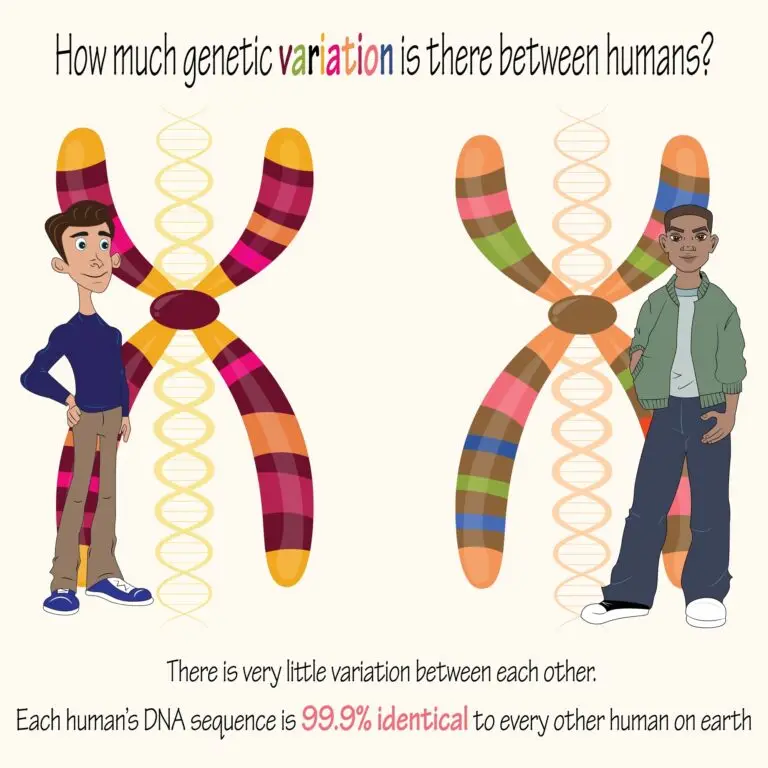Genetic Variation

Table of Contents
What is Genetic Variation?
Genetic variation refers to the diversity of genetic material within a population or among individuals of the same species. It encompasses the differences in DNA sequences, genes, and chromosomes that contribute to individuals’ unique traits and characteristics. Genetic variation is crucial for populations’ adaptability, evolution, and survival over time.
Importance of Genetic Variation
Source of Diversity
Genetic variation arises from differences in the DNA sequences of genes and other genomic regions. These differences can result from mutations, recombination, and other genetic processes.
Mutations
Mutations are spontaneous changes in the DNA sequence that can occur during DNA replication or due to external factors such as radiation or chemicals. Mutations contribute to genetic diversity by introducing new alleles or variations in existing alleles.
Recombination
Recombination occurs during the formation of gametes (sperm and eggs) through processes like crossing over during meiosis. It leads to the exchange of genetic material between homologous chromosomes and generates new combinations of alleles.
Sexual Reproduction
Sexual reproduction, which involves the fusion of gametes from two parents, introduces additional genetic variation. The combination of genetic material from two individuals during fertilization results in unique offspring with a mix of genetic traits.
Gene Flow
Gene flow, or the movement of genes between populations, can contribute to genetic variation. It occurs through the migration of individuals and the exchange of genetic material between different populations.
Genetic Diversity and Evolution
Genetic variation is essential for the process of evolution. Over time, natural selection acts on the variation present in populations, leading to the adaptation of species to their environments.
Related Links
Allele
Inheritance
Natural Selection
Variation